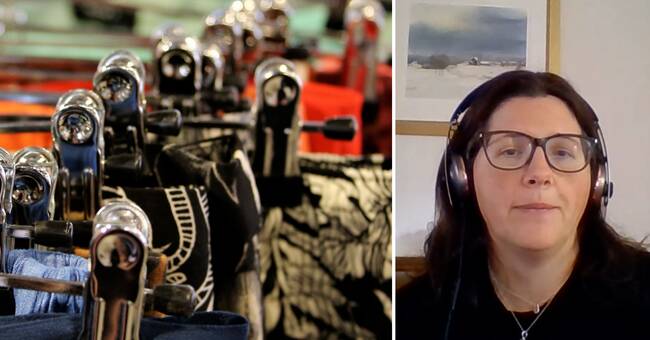The tax is introduced on all clothes and shoes, according to the proposal, and then traders who can show that the goods are non-toxic get back 95 percent of the tax.
The government agreed with the January parties to introduce the tax in April, but due to the pandemic, the introduction is postponed until 2022.
Sweden already has a chemical tax on electronics to reduce dangerous flame retardants in people's homes, a tax that was raised in the spring of 2019.
Prohibited substances unusual
According to Camilla Westlund, inspector at the Swedish Chemicals Agency, it is quite unusual for the authority to find so-called limited, ie red-listed, substances in textiles.
- Swedish companies are actively working to stay ahead of the legislation and have already phased out topics that are being restricted, she tells SVT Nyheter.
- We mainly look for topics that are limited, but there are not that many today.
It is thought that this tax will serve as a complement to the legislation.
Want to limit more
Sweden, together with France, has submitted a proposal that would make more than 1,000 allergenic substances, which can be found in our clothes today, limited in the EU.
- There may be dyes that are dangerous and are absorbed through the skin.
At the same time, there are several systems that companies can use to help capture hazardous chemicals, even if they are not limited, says Camilla Westlund.
According to her, it is important to tax the right substances.
Otherwise, the problem may get worse.
- It is important that you do not introduce a tax that goes wrong, that you tax a chemical and that the companies then choose another, more dangerous and untaxed variant.

